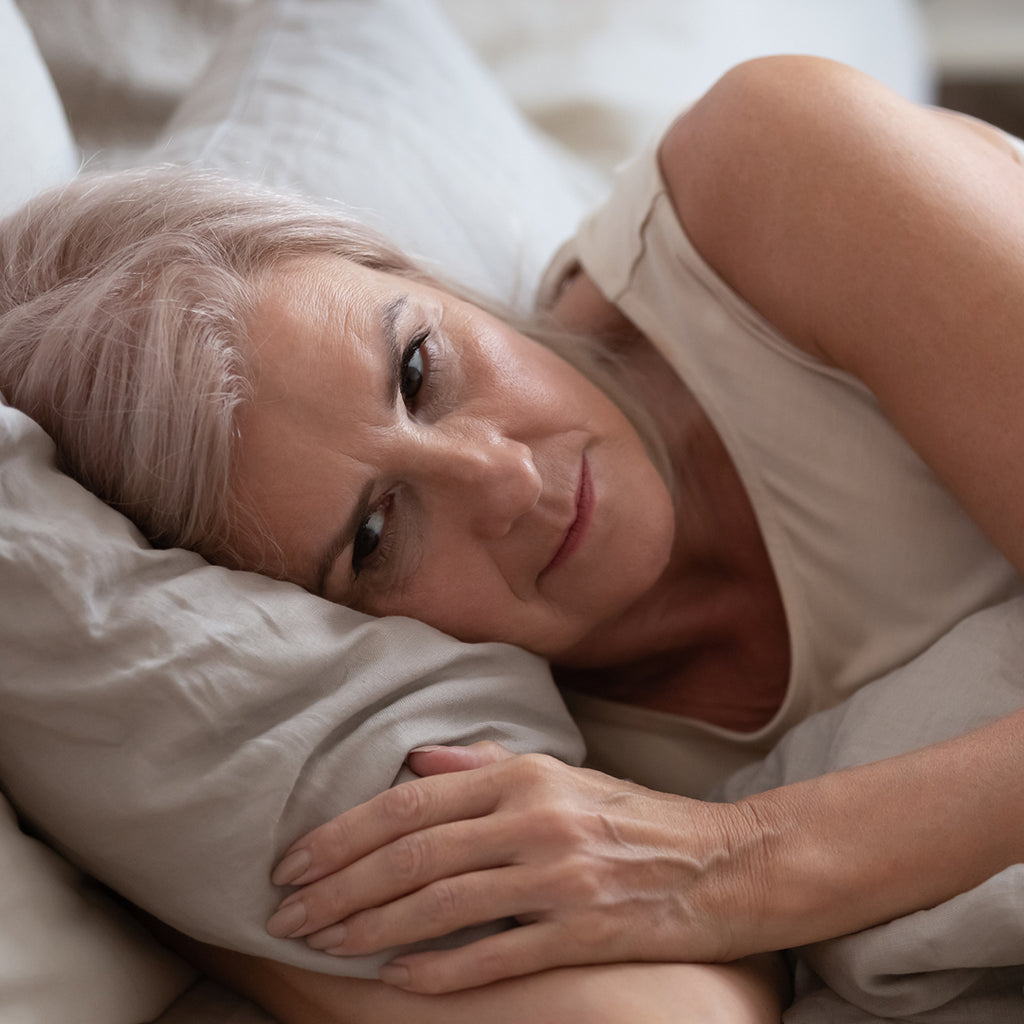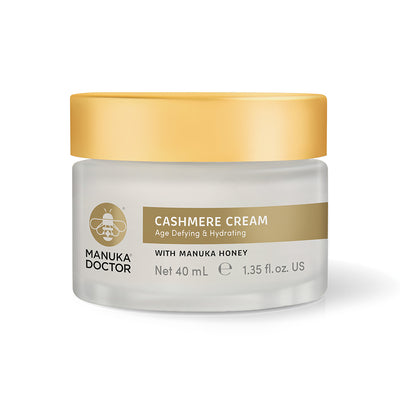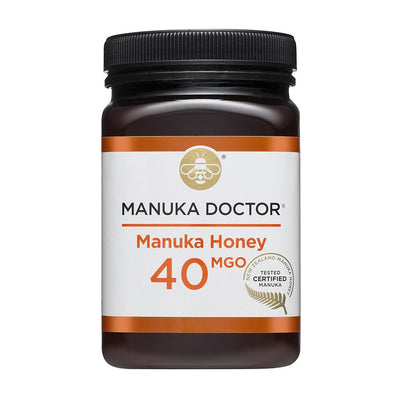- Experts recommend a teaspoon of raw honey 30 minutes before bed to enhance your sleep
- Fixing sleep problems can slow the rate of cognitive decline and delay the onset of Alzheimer’s by up to ten years
- Getting a full night’s sleep is the key to a youthful and glowing complexion
If you find yourself tossing and turning during the night, you are not alone. Up to 70% of older adults suffer with sleep issues.[1]

A good night’s sleep can help clear out potentially damaging brain gunk each night. Trials suggest fixing sleep problems can slow the rate of cognitive decline and delay the onset of Alzheimer’s by up to ten years.[2] Thankfully, there is also evidence that improving sleep can boost both short- and long-term cognitive performance promoting sharper thinking and reducing the likelihood of age-related cognitive decline.[3]
Natural Remedies for Better Sleep
If you need a helping hand dropping off and more importantly, staying asleep, there are natural sleep remedies in varying shapes, sizes and delivery methods all worth their weight in gold.
Why Honey Helps You Sleep Better
One of the most important aspects to getting good, restorative sleep is to ensure that your blood sugar levels are balanced throughout the day and particularly before you go to bed.
If you go to bed with poorly balanced blood sugar levels, you can find yourself waking up feeling restless and hungry and then find it hard to get back to sleep. Some people even need to get up and eat during the night before they can go back to sleep. Having a spoonful of good Manuka honey before you hit the sack can also help to optimise your sleep and rest.
According to clinical psychologist and sleep specialist Michael Breus PhD, a teaspoon of raw honey about 30 minutes before bed can keep you full, thereby enhancing your snooze. ‘It can actually keep blood sugar somewhat stable.’
So how exactly does honey work its magic at night?
While you sleep at night, the body goes into a fasted state and the brain draws on liver glycogen - the glucose storage tank - in order to keep vital functions ticking over efficiently as you sleep. Honey - with its equal amounts of fructose and glucose - can help restore liver glycogen levels so your brain doesn't use up all that storage. So it also stops hunger pangs waking you up at odd hours. A further study has also shown that a milk-honey mixture before bed can even enhance sleep quality.[4]
The Benefits of Lavender & Lemon Balm for Sleep
A daily supplement with well-known sleep inducing botanicals Lemon Balm, Lavender & Hops. Also providing vitamins and minerals to maintain psychological and nervous function, regulate hormone activity and blood glucose levels, in addition to mental performance and stress management which helps to relax and unwind for a great night’s sleep. Manuka Doctor Night-Time Relax Formula 30 Capsules “One of these a night helps me to relax and drop off to sleep. A great product!” Sheena
Relaxing Sleep Spray
A relaxing sleep mist with essential oils of Lavender, Patchouli and Chamomile combined with Manuka honey and natural Hemp extract to help promote a restful night’s sleep. Manuka Pharm Sleep Pillow Spray 50ml “Great product smells good and helps me to relax at night” Amanda W
10 Tips for a Good Night's Sleep:
- Relax - Whether it’s taking a warm bath, reading a book, or listening to soothing music before bed, make sure you relax.
- Routine - Try to go to bed at the same time every day and create your own relaxation routine.
- Avoid technology - Ban phones, computers and TVs from the bedroom and avoid looking at them for an hour before bed.
- Create a relaxing ambience - Ensure that your room is the right temperature between 16 °C and 18 °C (60°F to 65°F) also a lack of clutter will relax the mind.
- Don’t clock watch - Remind yourself that resting in bed and thinking nice thoughts is more productive than tossing and turning and looking at the clock every ten minutes.
- Foods for sleeping - Eating healthily improves sleep generally, but some foods are particularly beneficial, such as milk, chicken, turkey and pumpkin seeds. Try a milk-honey mixture before bed to enhance sleep quality.
- Foods to avoid - Spicy food, alcohol and large meals shouldn’t be consumed in the hours before bedtime. Drinking caffeine in the afternoon can affect sleep.
- Darkness promotes sleep - A darkened room helps to promote sleep. Try to block out external light with shutters or blinds.
- Keep active in the day - Physical activity is great for sleep, as well as for your health generally.
- Incorporate lavender into your bedtime regime - Lavender is used in everything from bath bombs to fabric softener because its fragrance helps you relax. Now scientists have confirmed the smell of lavender really does help you unwind. Japanese researchers at Kagoshima University discovered that those exposed to the aroma of Lavender had less signs of anxiety and helped them relax.



